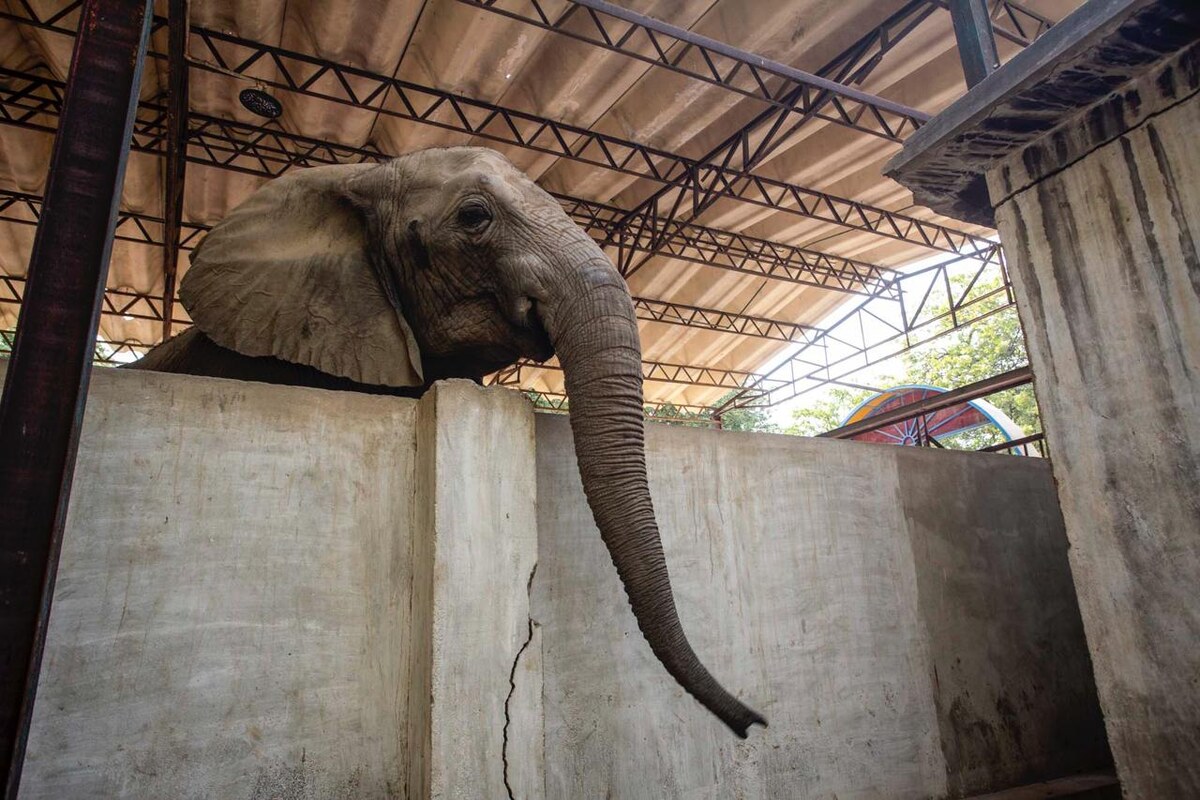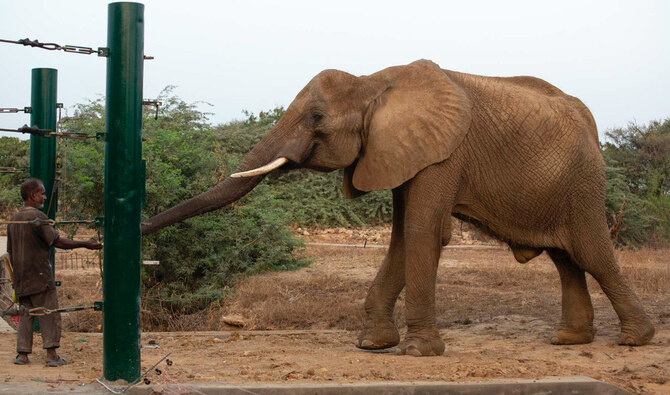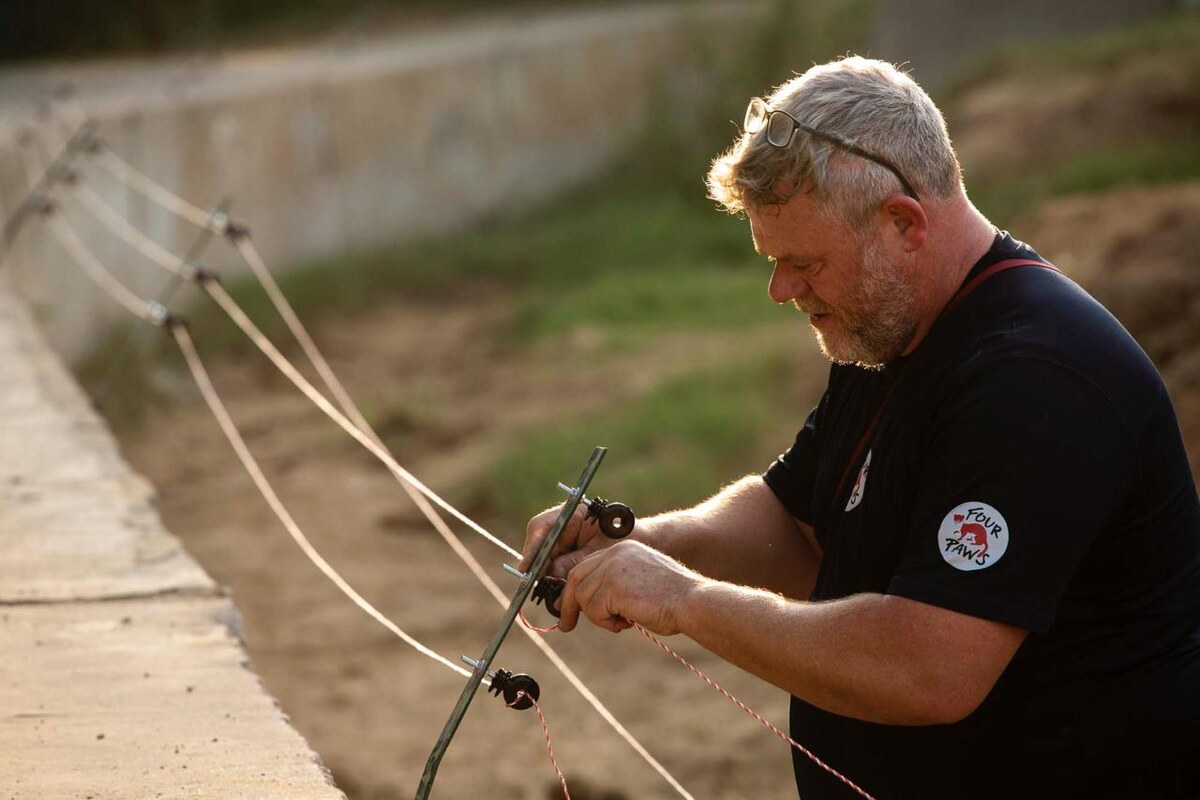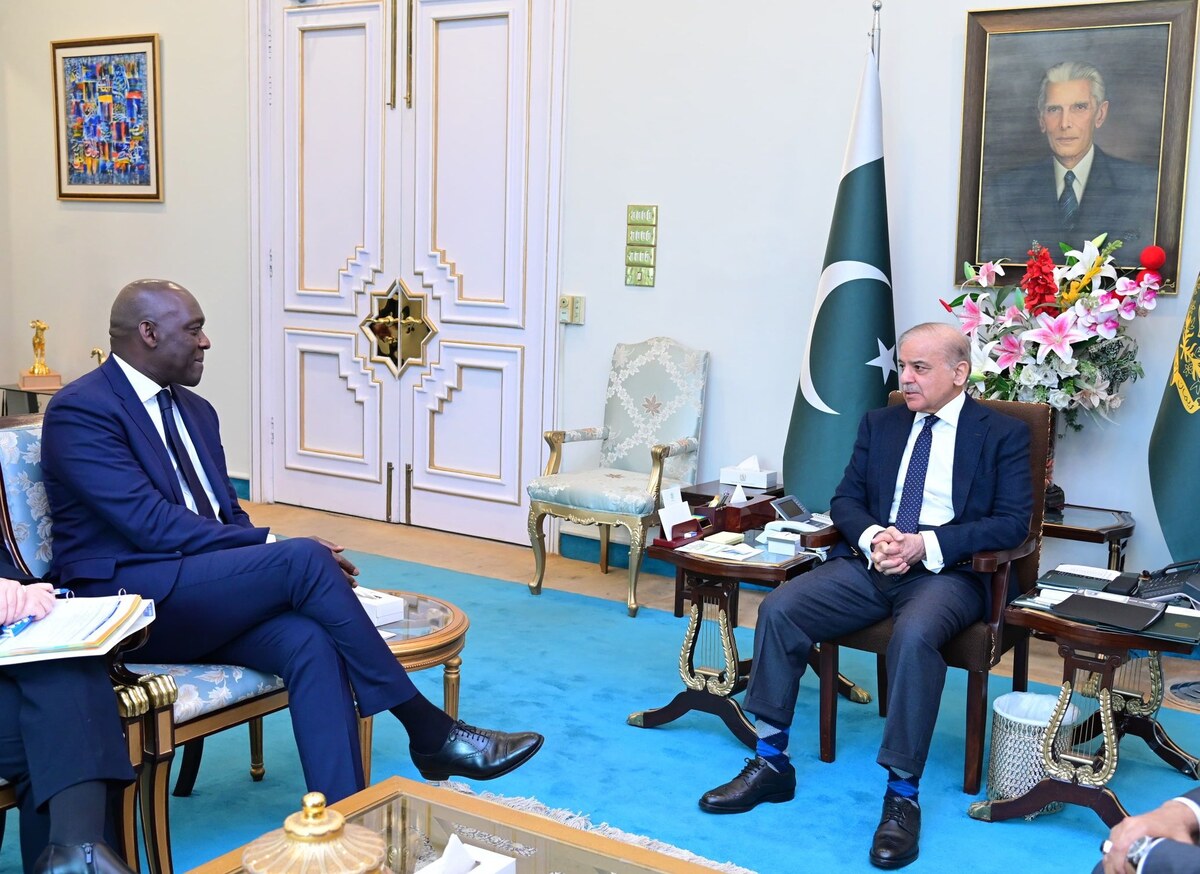KARACHI: Madhubala, an elephant whose only companion died last year and who was separated from her family fifteen years ago when she was brought to Pakistan from Tanzania, was transported to the Safari Park in the port city of Karachi on Tuesday and reunited with her sisters.
Madhubala, Noor Jehan, Malika and Sonu were caught in the wild at a young age and brought to Pakistan together in 2009 but were soon separated, with Noor Jehan and Madhubala moved to the Karachi Zoo and Malika and Sonu to the city’s Safari Park. Noor Jehan died in April 2023 at age 17, following a prolonged illness caused by neglect, leaving Madhubala alone.
Earlier in November 2021, the provincial Sindh High Court had asked international animal welfare organization FOUR PAWS to assess the wellbeing of the four elephants. All were found to be in need of better diet and medical treatment. Noor Jehan and Madhubala also needed dental surgery due to infections caused by broken tusks. Following the death of Noor Jehan, the Karachi Metropolitan Corporation together with FOUR PAWS decided it was not appropriate for Madhubala, estimated to be 18 years old, to stay in captivity at the zoo.
Elephants are highly social animals who form close bonds with other elephants, and when they meet after being separated engage in elaborate greeting ceremonies. New research has found that elephants also call each other by name, using vocalizations that identify a specific elephant as the intended recipient.
“This rehoming to a species-appropriate enclosure marks a monumental step for animal welfare in Pakistan,” said FOUR PAWS CEO and President Josef Pfabigan about Madhubala’s relocation. “It sends a strong signal to other countries where elephants are still kept in captivity for entertainment.”

This handout photo, taken and released by FOUR PAWS International, a Vienna-based animal welfare organization, on November 24, 2024, shows officials from the FOUR PAWS work on a sanctuary being created for Madhubala, one of only three captive elephants in Pakistan, at Safari Park in Karachi. (Photo courtesy: FOUR PAWS/Handout)
The relocation process for Madhubala, named after a legandary Indian actress, started early on Tuesday morning with the elephant being sedated under the supervision of Dr. Frank Goritz from the Leibniz Institute for Zoo and Wildlife Research (IZW). She was then moved into a crate which was lifted by crane and put on a truck.
The truck, accompanied by police and an expert team from FOUR PAWS, navigated through Karachi’s bustling streets via Lyari Expressway to arrive at the Safari sanctuary some 20 kilometers away from the zoo.
Ahead of the move, the Karachi Safari Park had upgraded its facilities to meet international standards under the supervision of FOUR PAWS.
“If elephants must remain in captivity, they deserve the best conditions possible,” Pfabigan told Arab New, adding that the new space would bring joy to Madhubala.

This handout photo, taken and released by FOUR PAWS International, a Vienna-based animal welfare organization, on November 24, 2024, shows Madhubala, one of only three captive elephants in Pakistan, at a zoo in Karachi. (Photo courtesy: FOUR PAWS/Handout)
Unlike Islamabad’s lone elephant, Kaavan, who was relocated to Cambodia in 2020 after widespread international and local outcry about his conditions, Madhubala has companions at Safari Park, he said.
“This is a different story,” Pfabigan said. “She has her sisters here.”

This handout photo, taken and released by FOUR PAWS International, a Vienna-based animal welfare organization, on November 24, 2024, shows Madhubala, one of only three captive elephants in Pakistan, at a zoo in Karachi. (Photo courtesy: FOUR PAWS/Handout)
Speaking to Arab News, veterinarian Dr. Marina Ivanova expressed optimism about the health of all three elephants and said she was curious to observe the interaction between the three sisters.
“Two years ago, Madhubala underwent complex surgery for inflamed tusks. Seeing her healthy is gratifying,” she said.

This handout photo, taken and released by FOUR PAWS International, a Vienna-based animal welfare organization, on November 24, 2024, shows official from the FOUR PAWS works on a sanctuary being created for Madhubala, one of only three captive elephants in Pakistan, at Safari Park in Karachi. (Photo courtesy: FOUR PAWS/Handout)
Upon arrival at Safari Park, Madhubala was placed in a holding enclosure before she was brought out into the sanctuary. Though she saw her sisters from a distance, FOUR PAWS Director Dr. Amir Khalil said they would be allowed to meet properly after their behavior was monitored.
“Madhubala will take her own pace and has only left her safe space, recently” Khalil added.
“We will see how things go tomorrow but for an elephant this is typical behavior and we are very proud and happy to see that she explores her new environment step by step.”


















